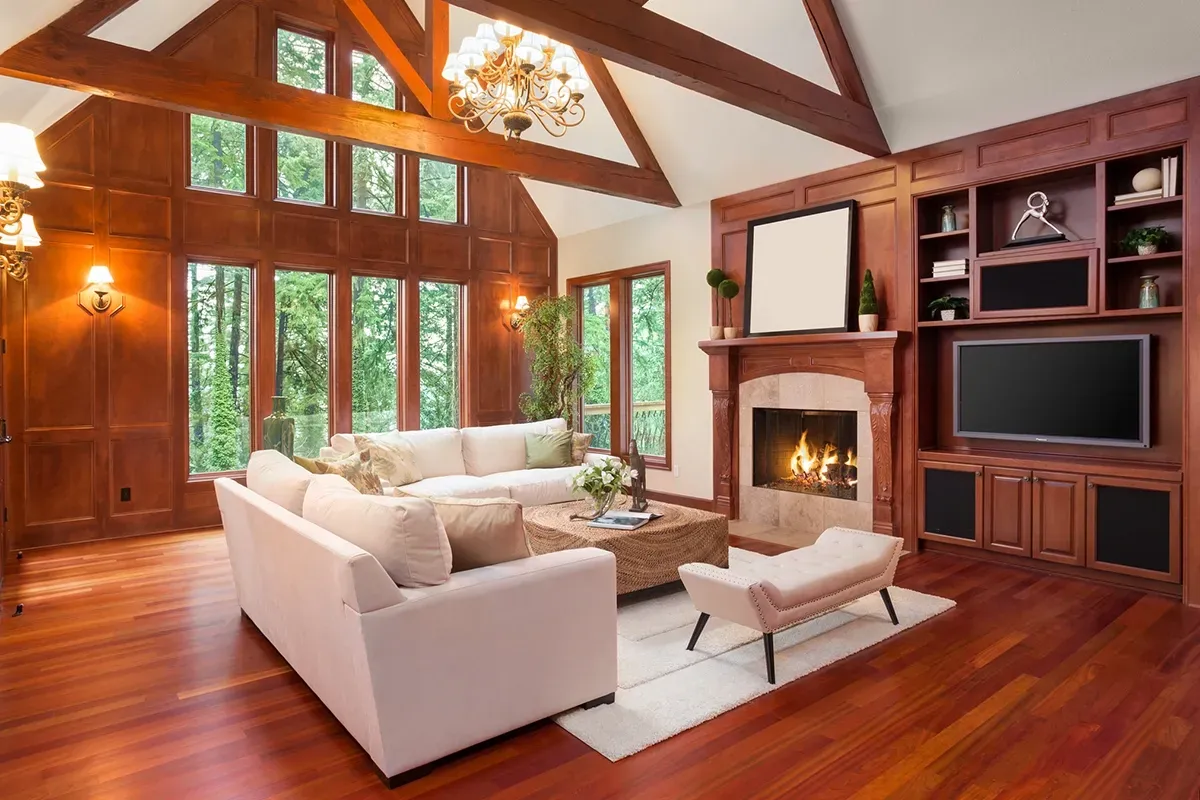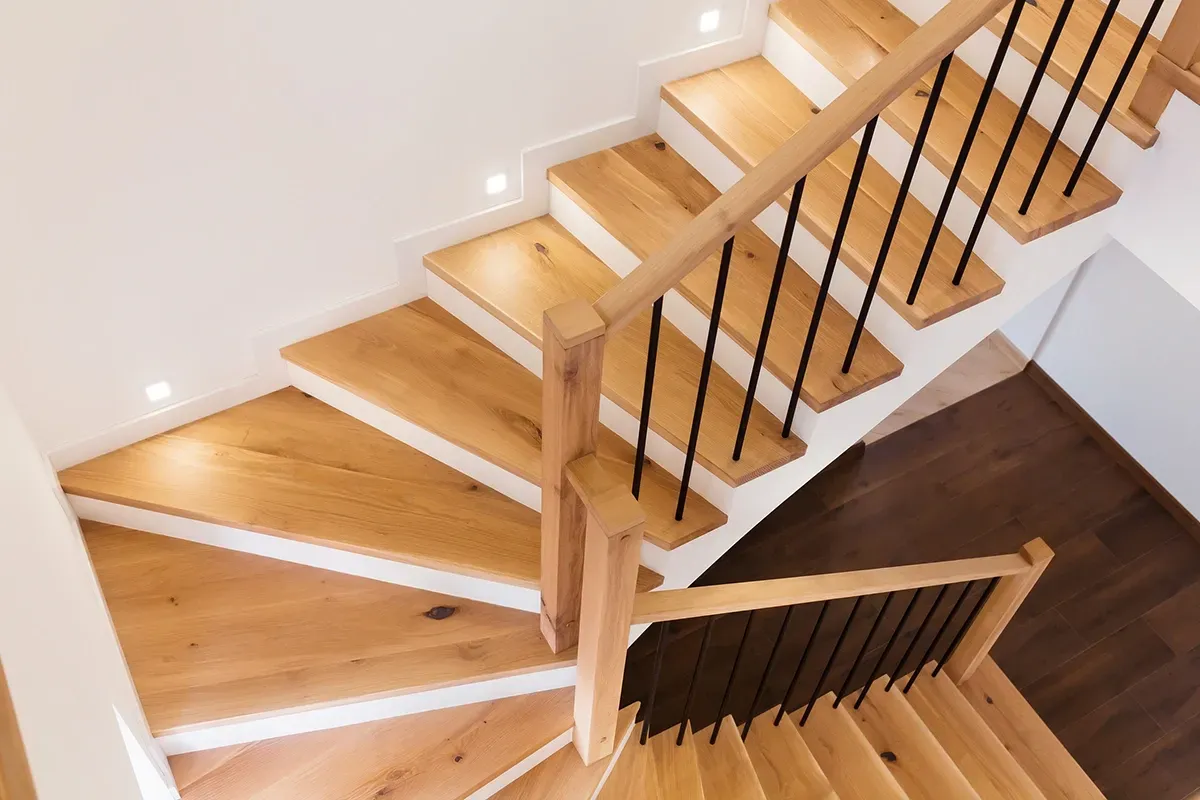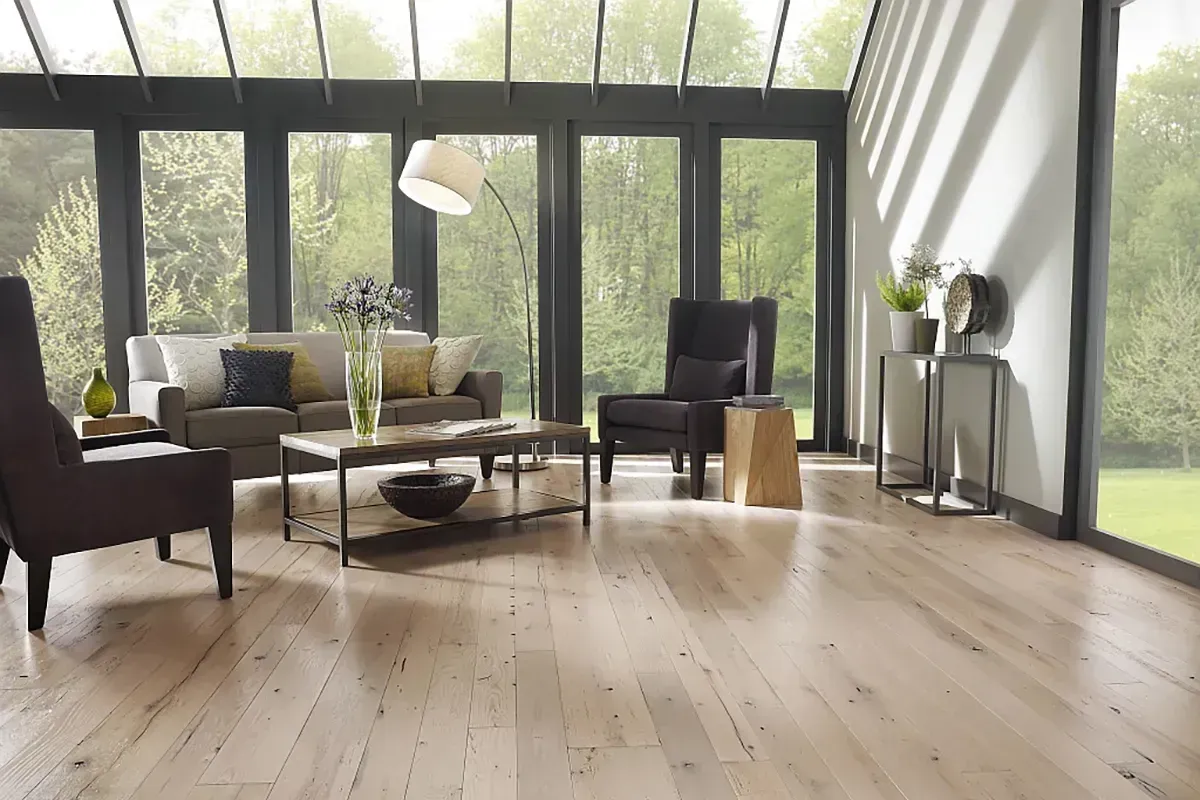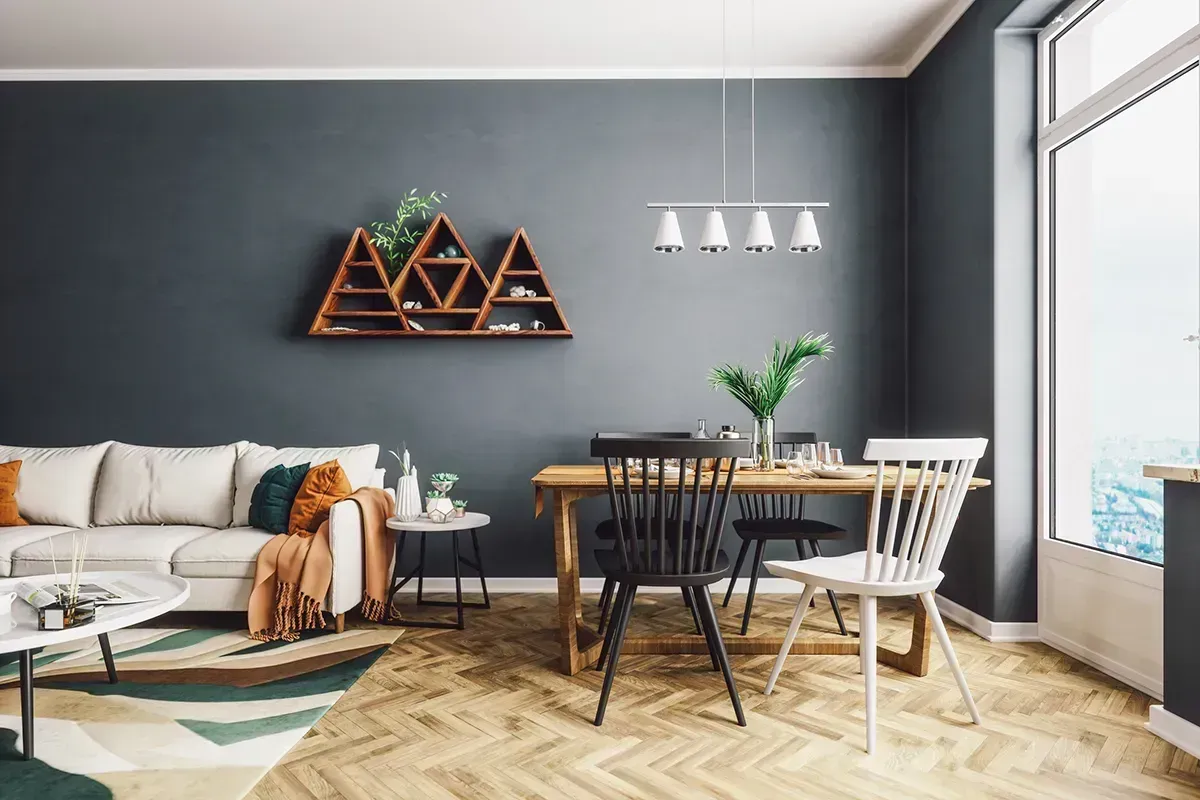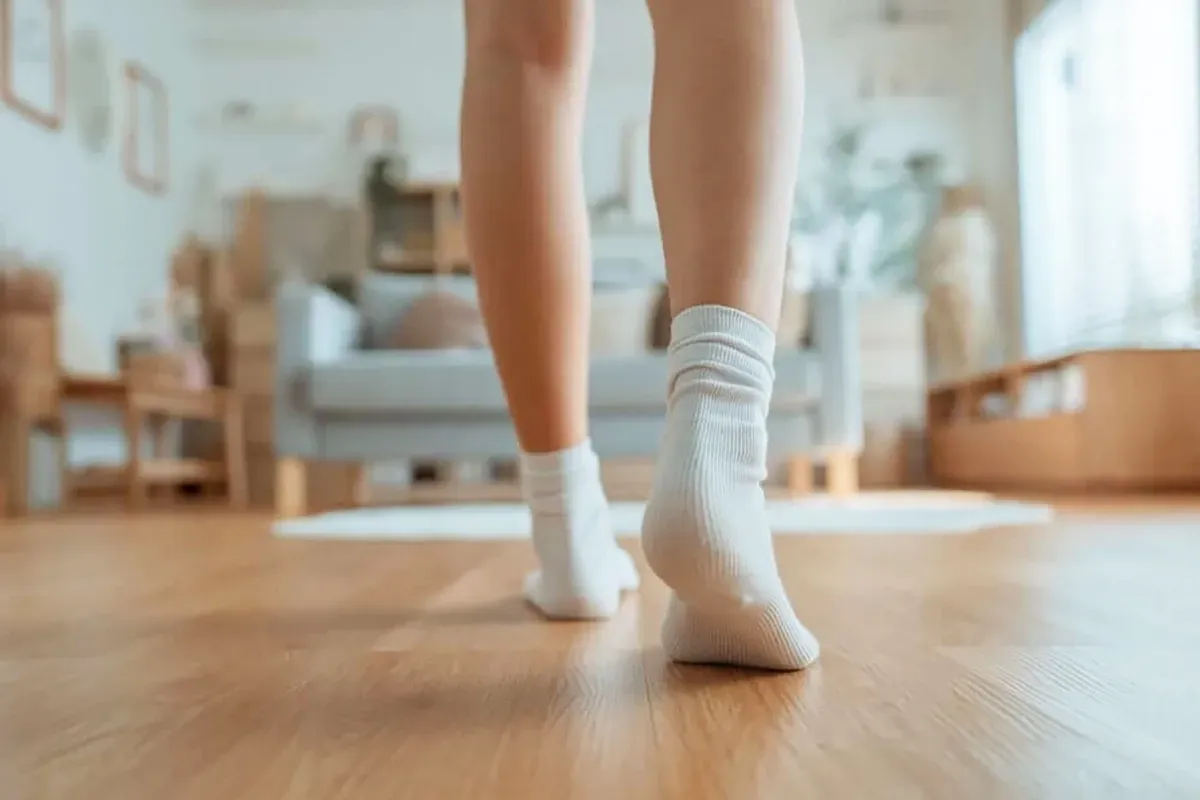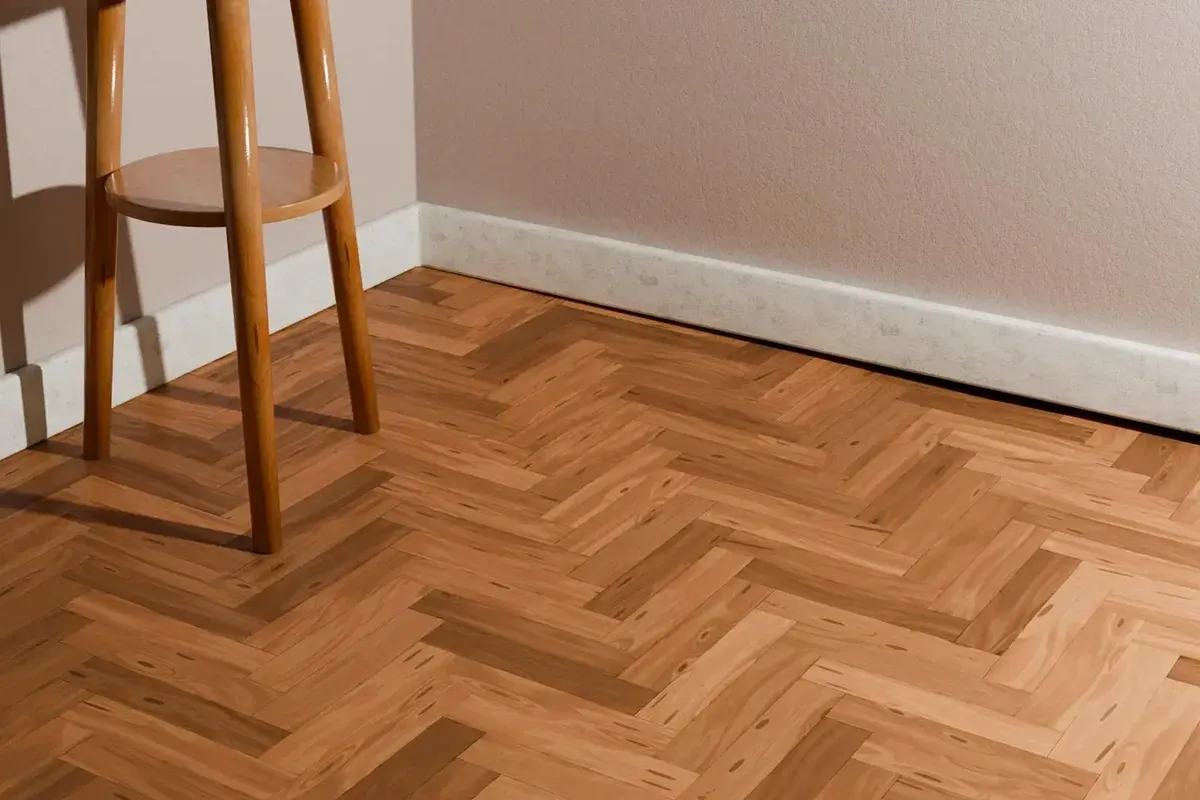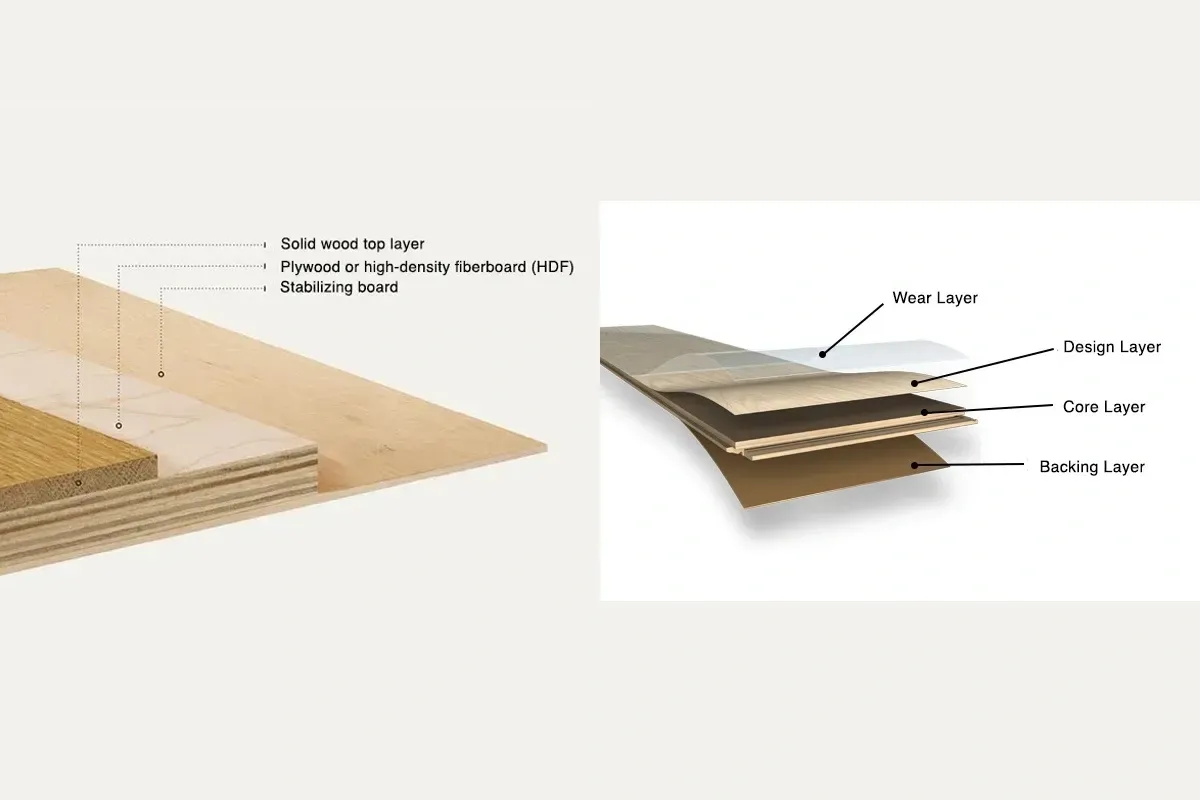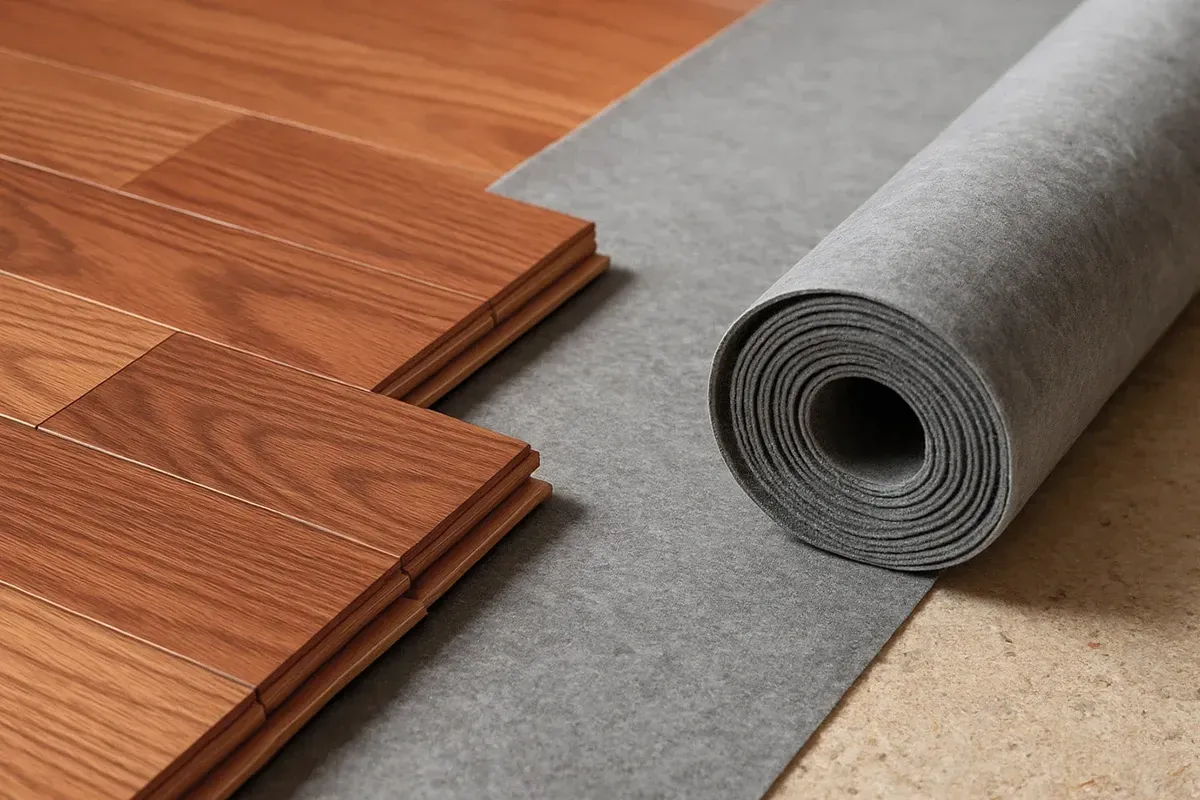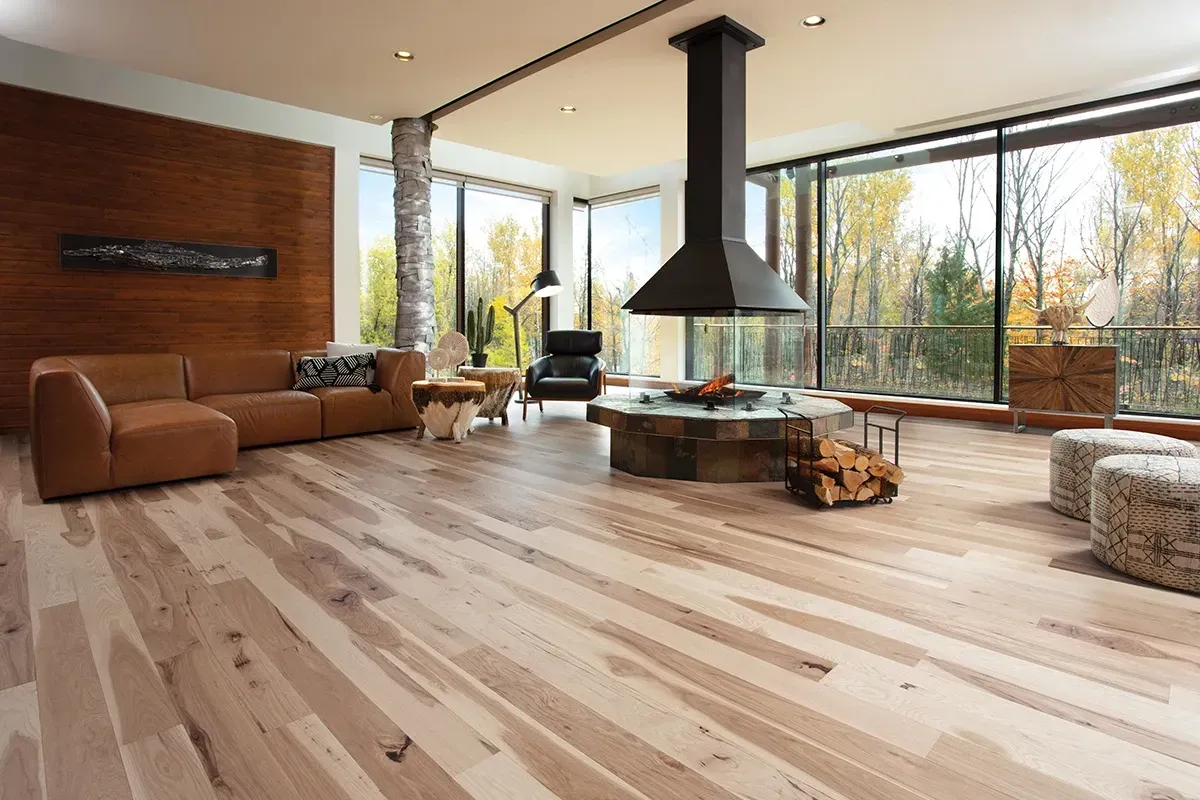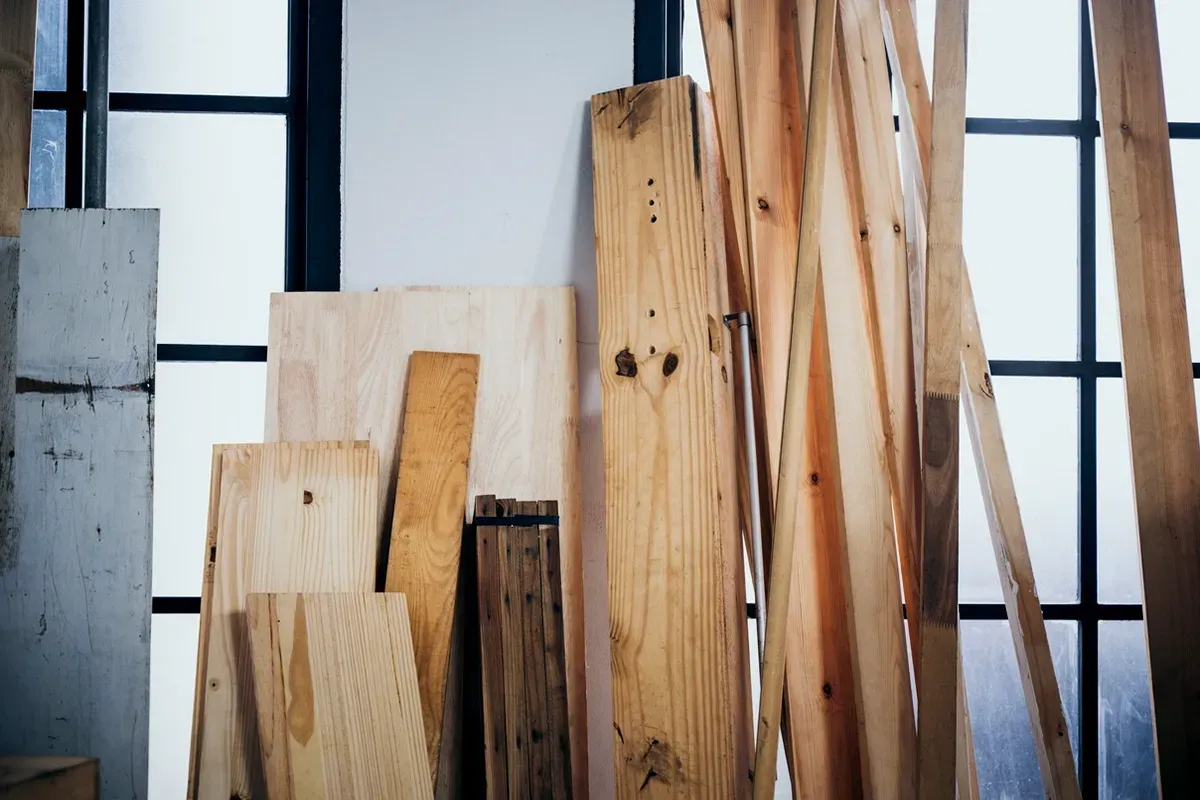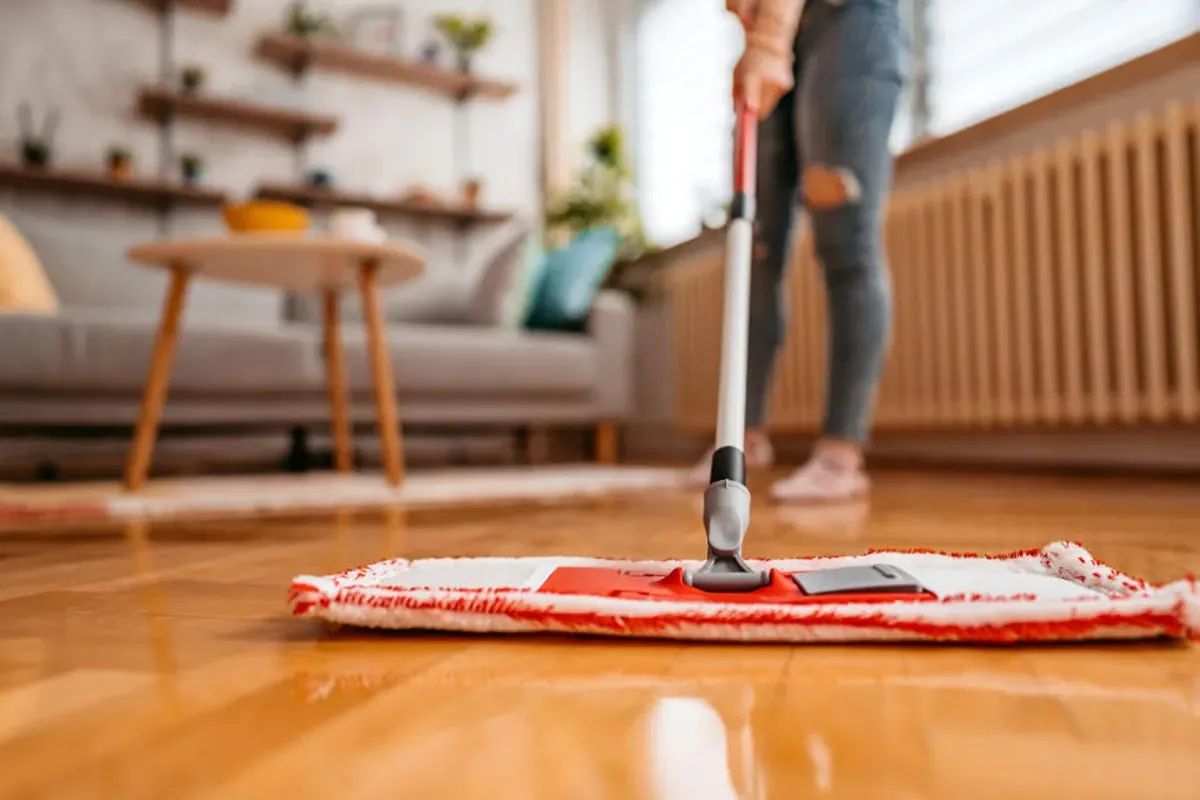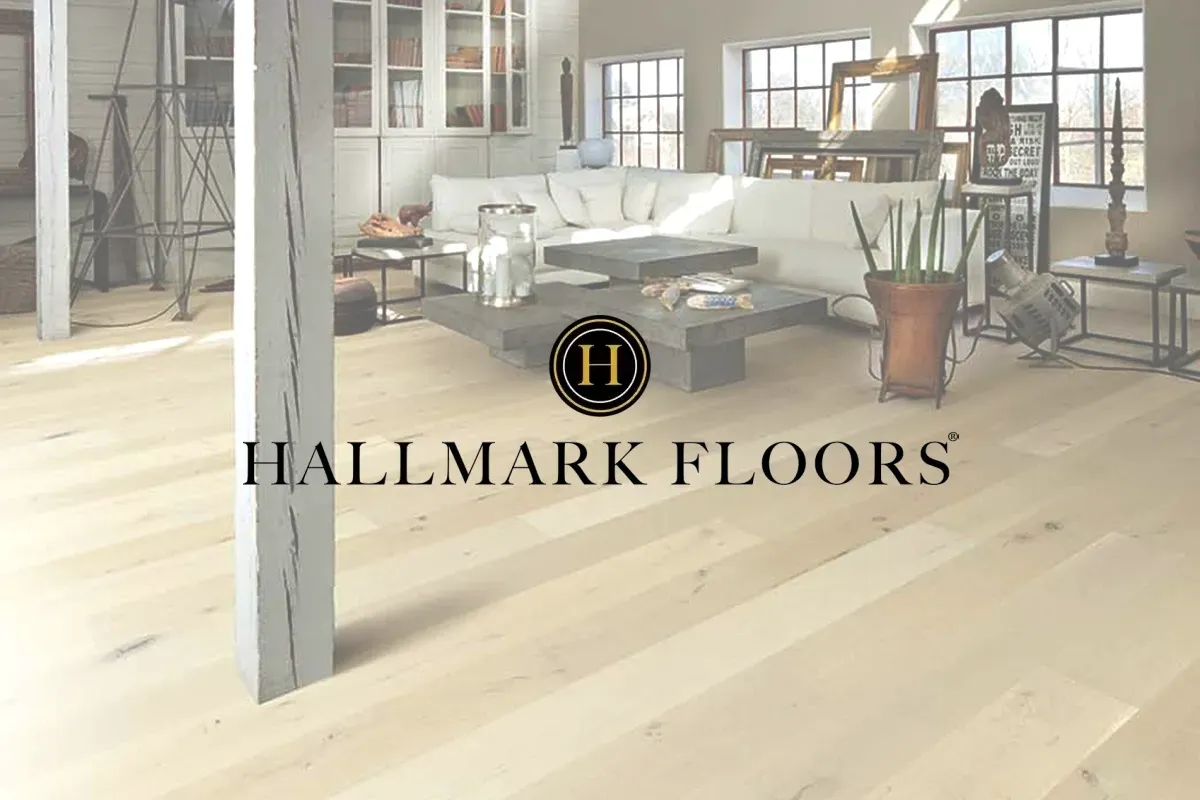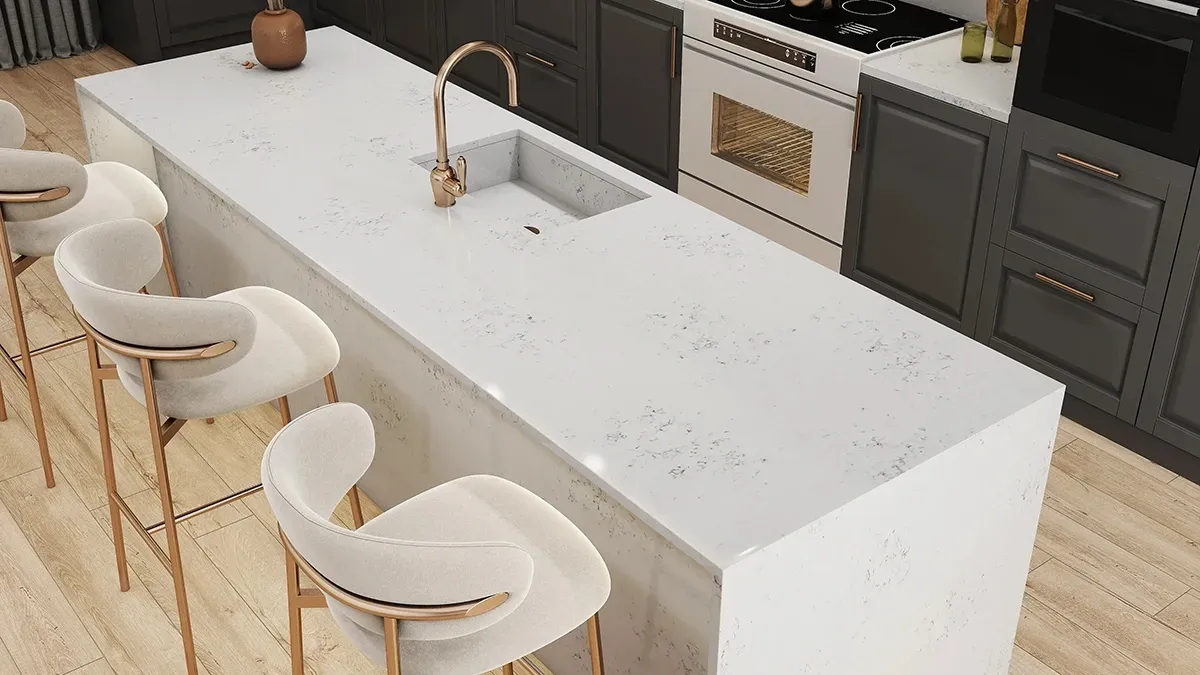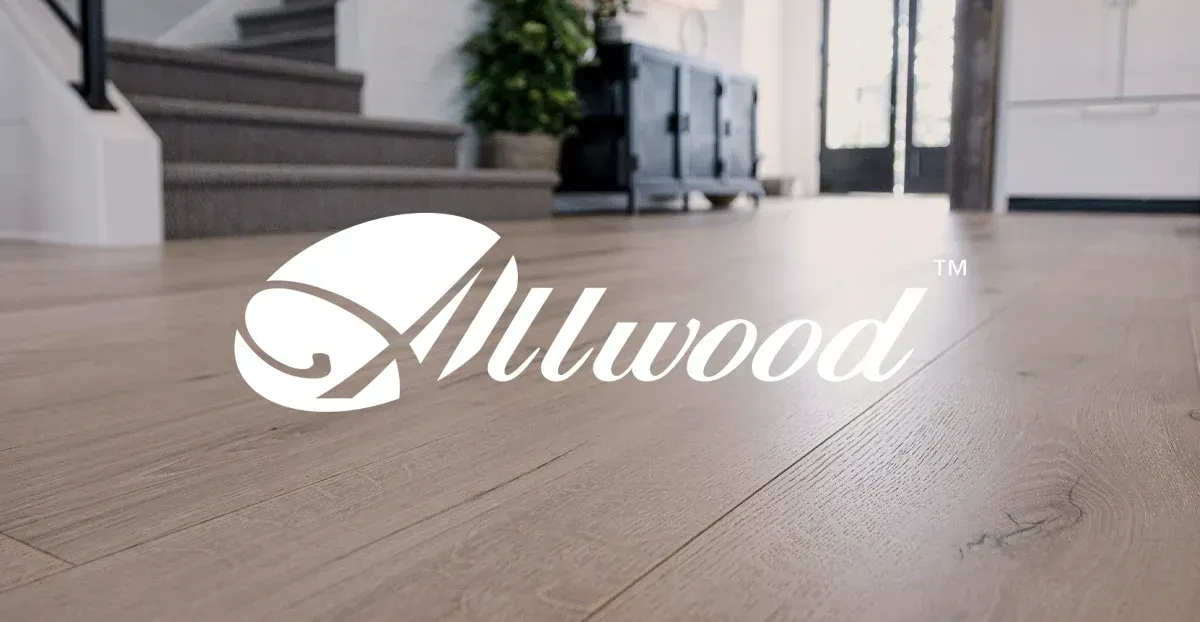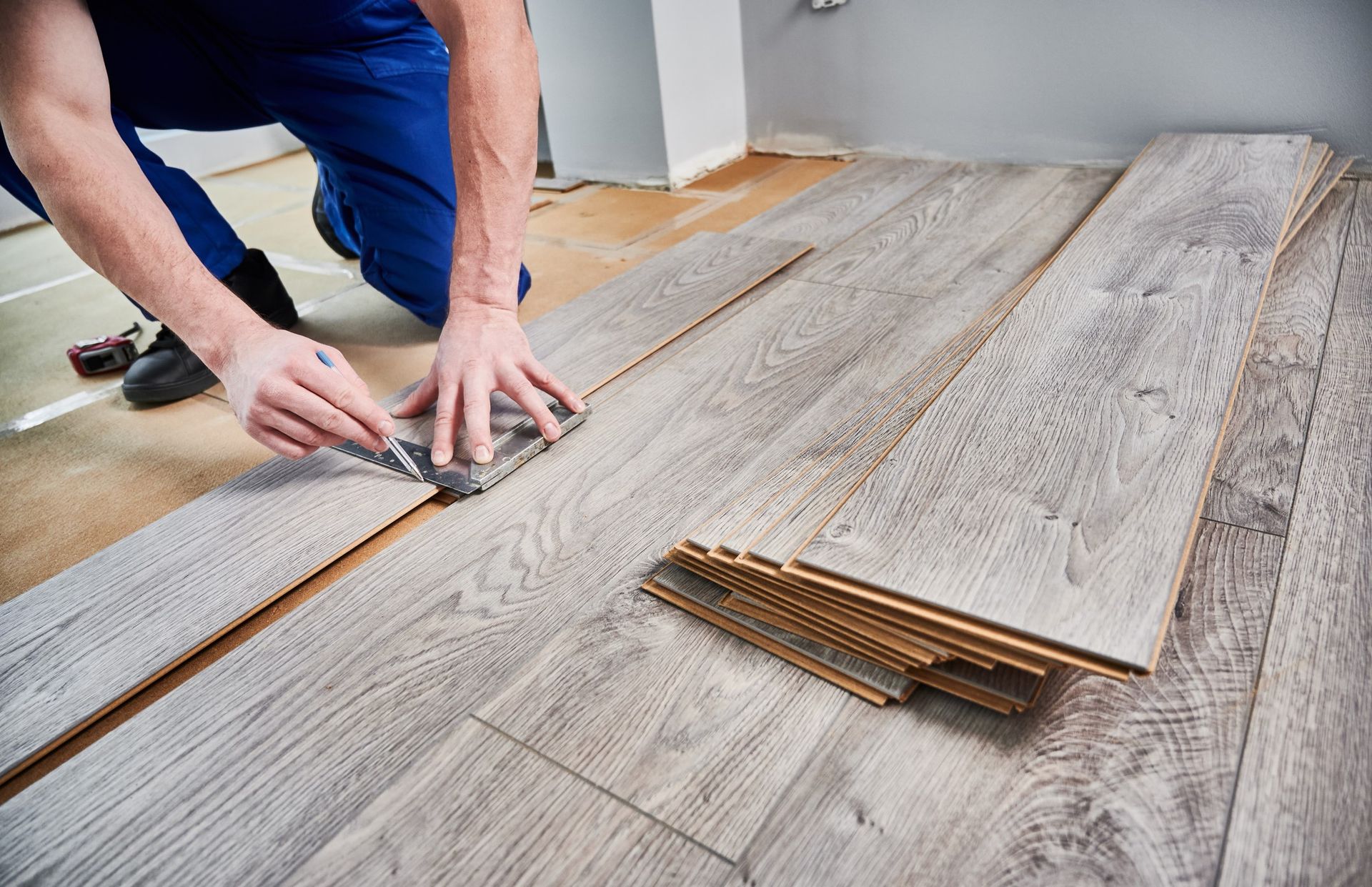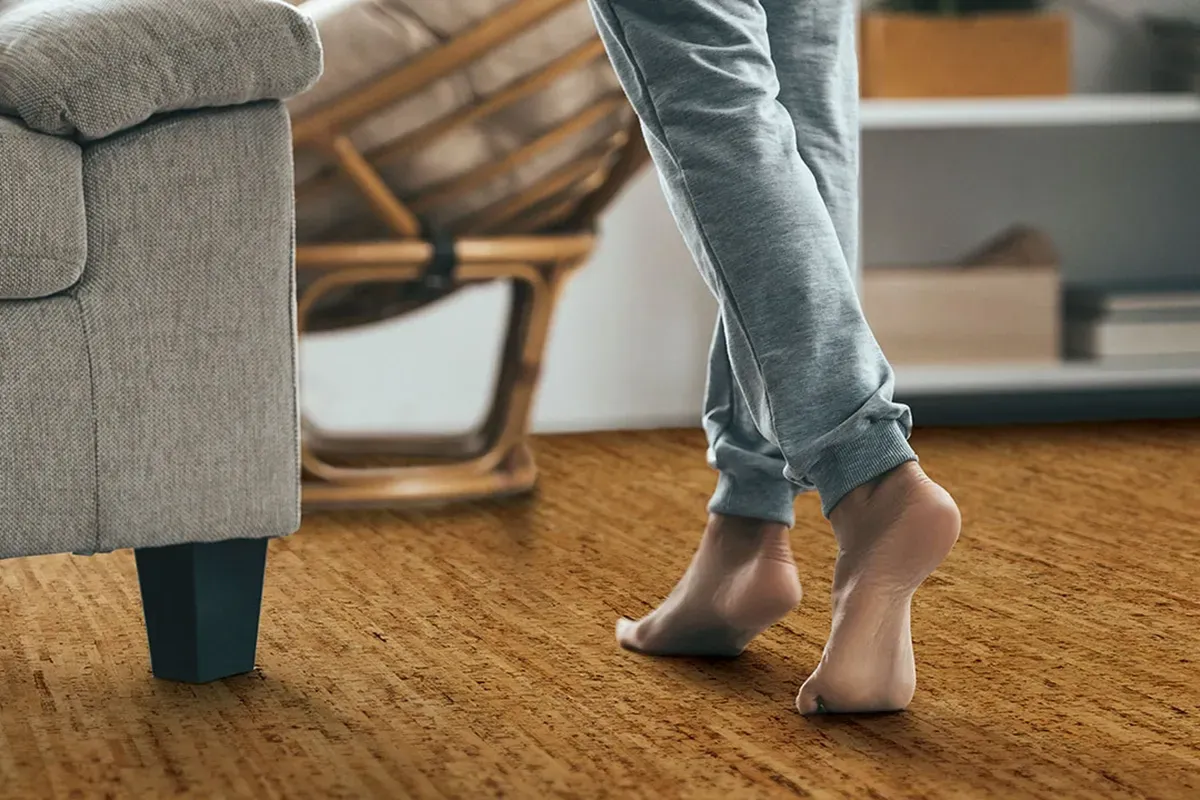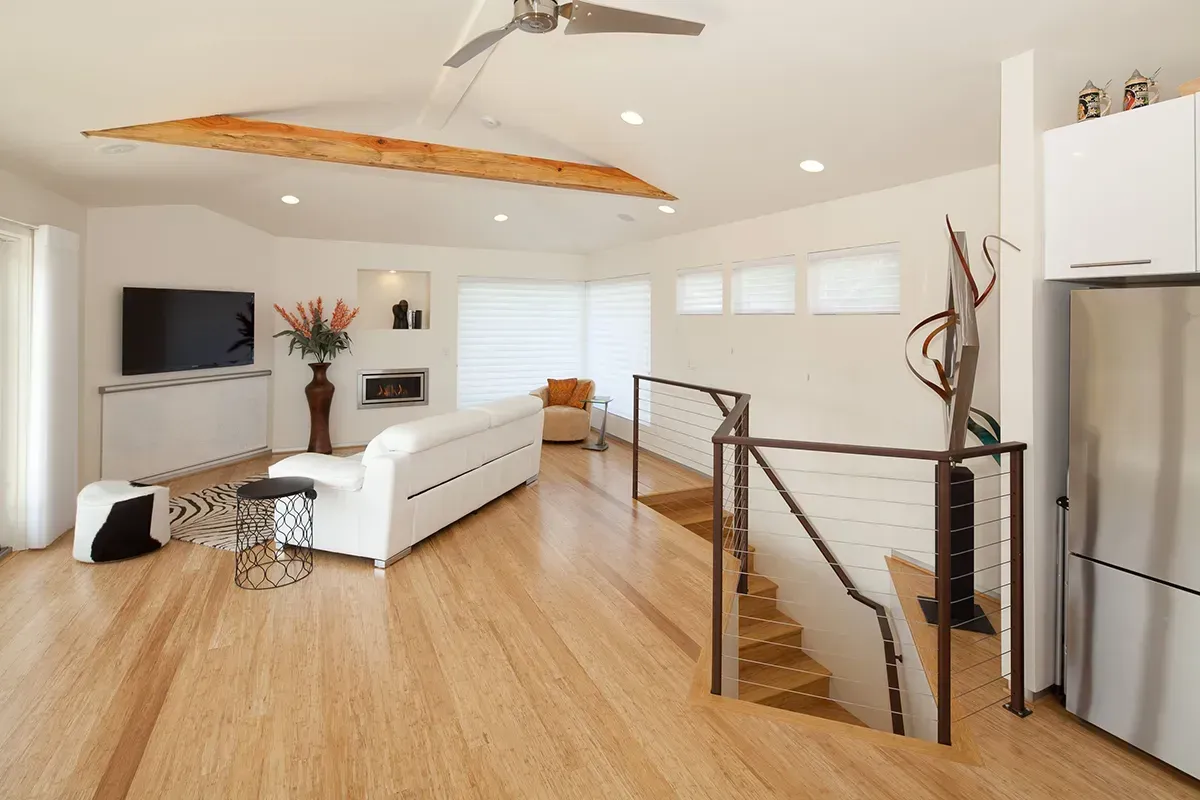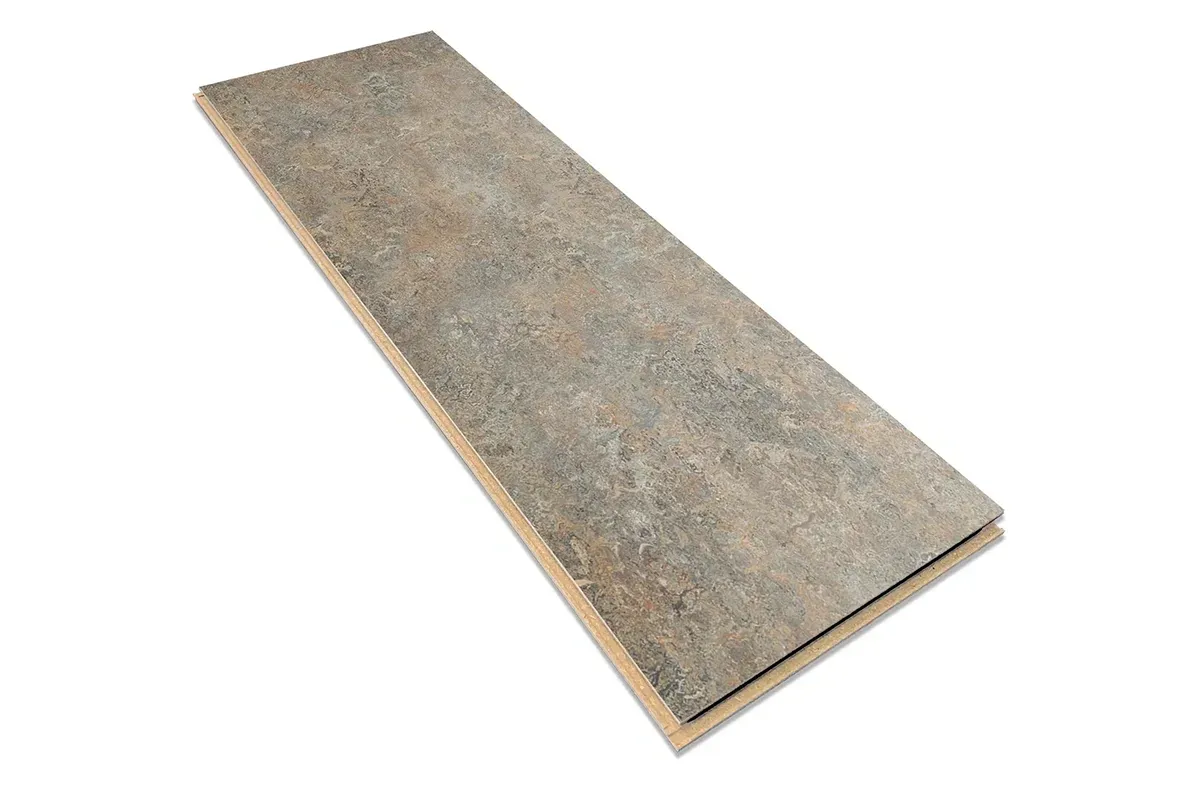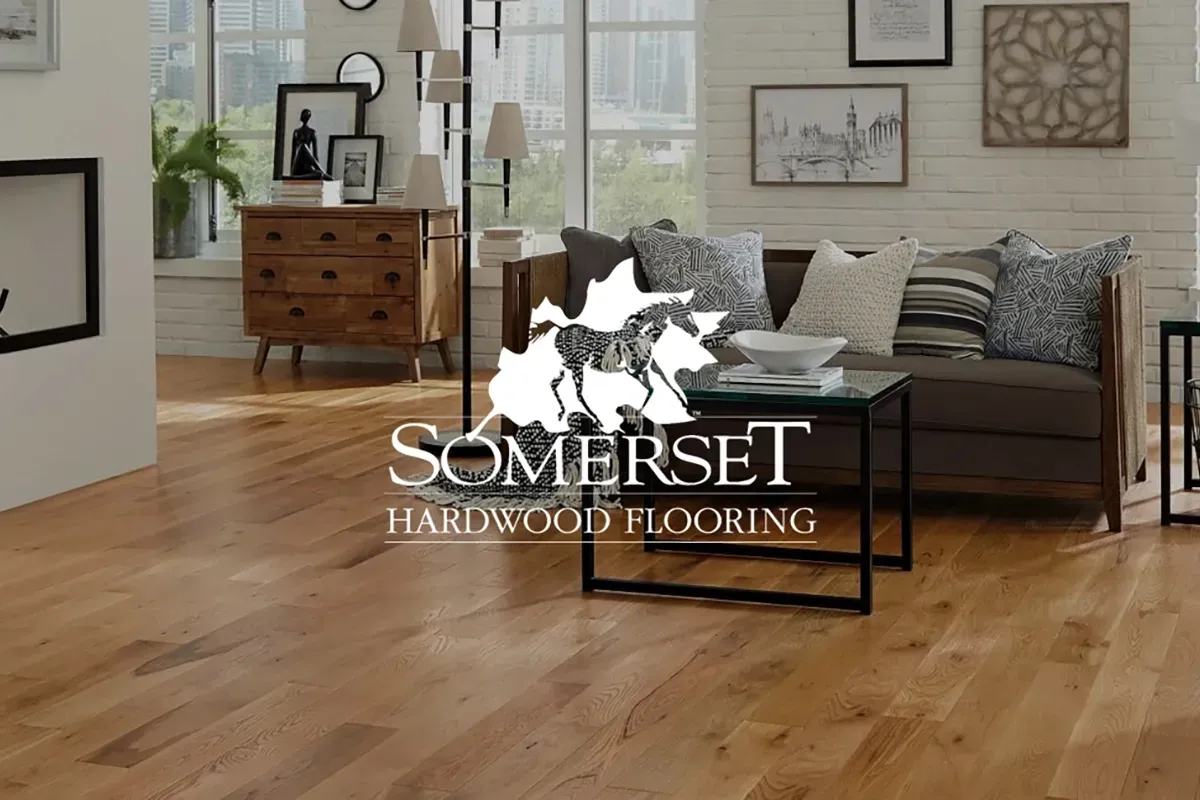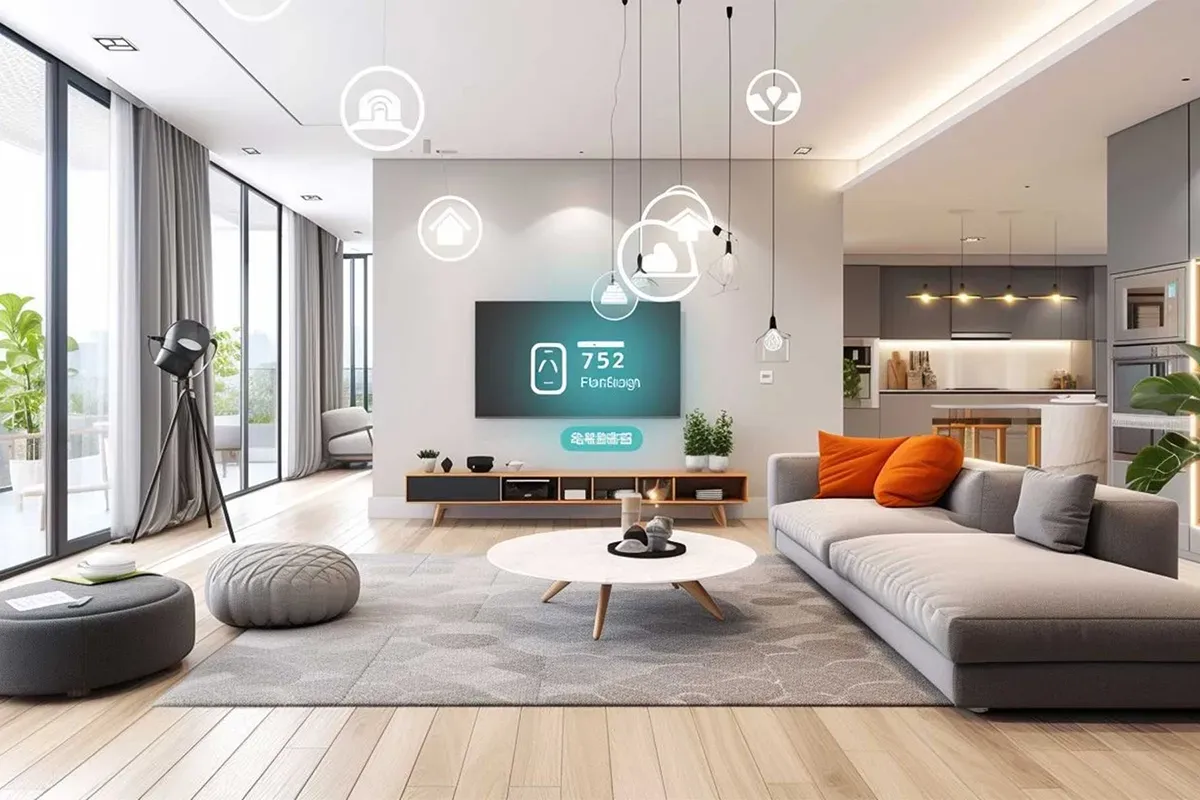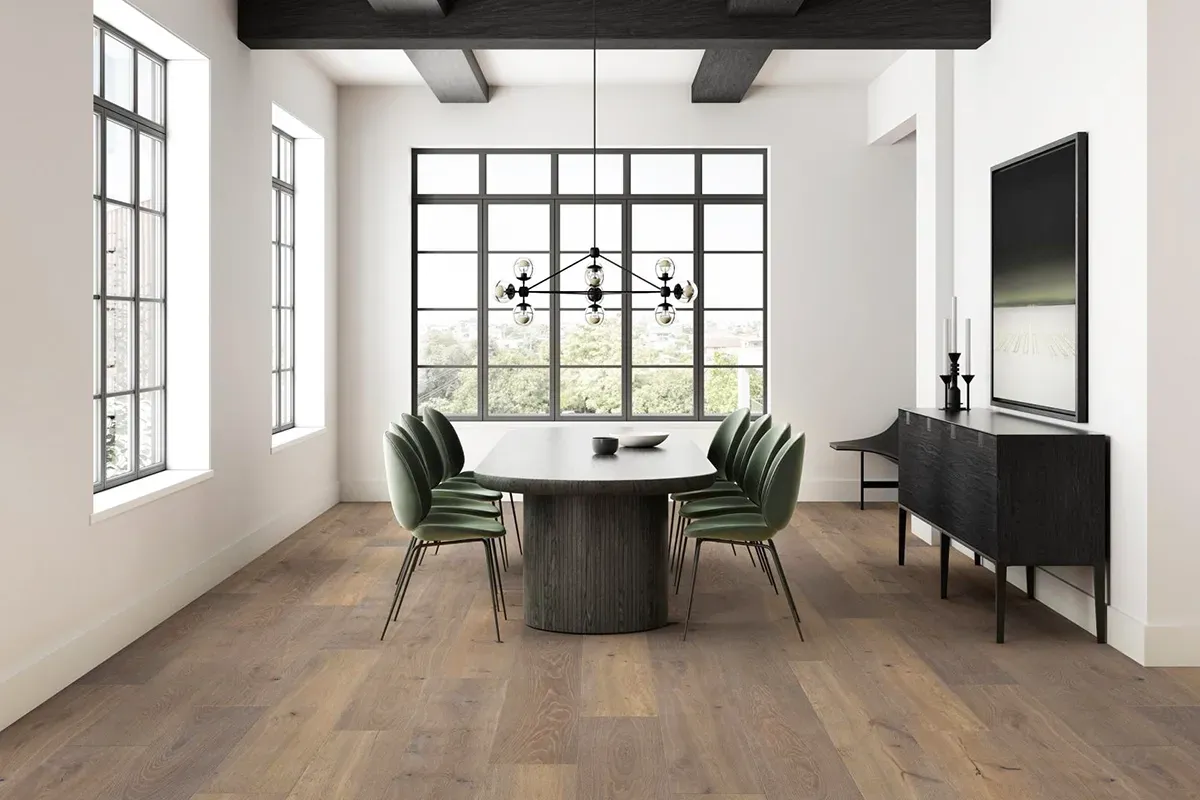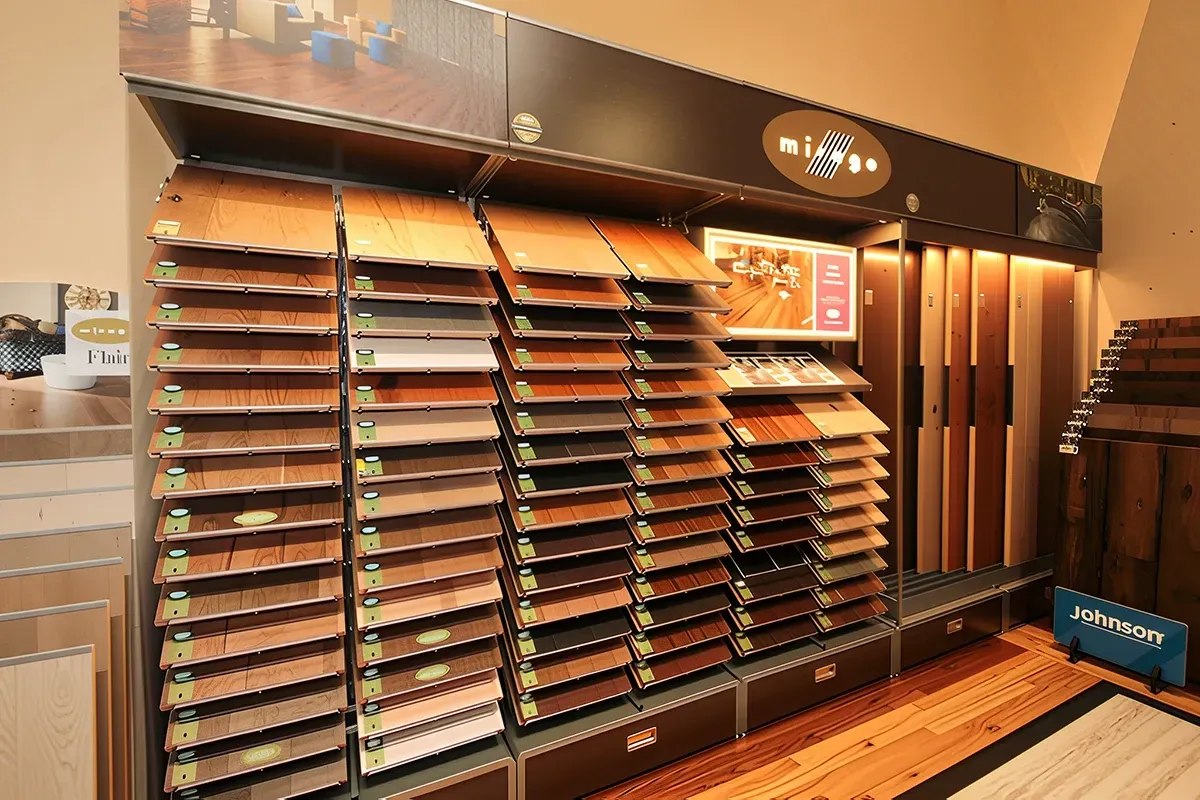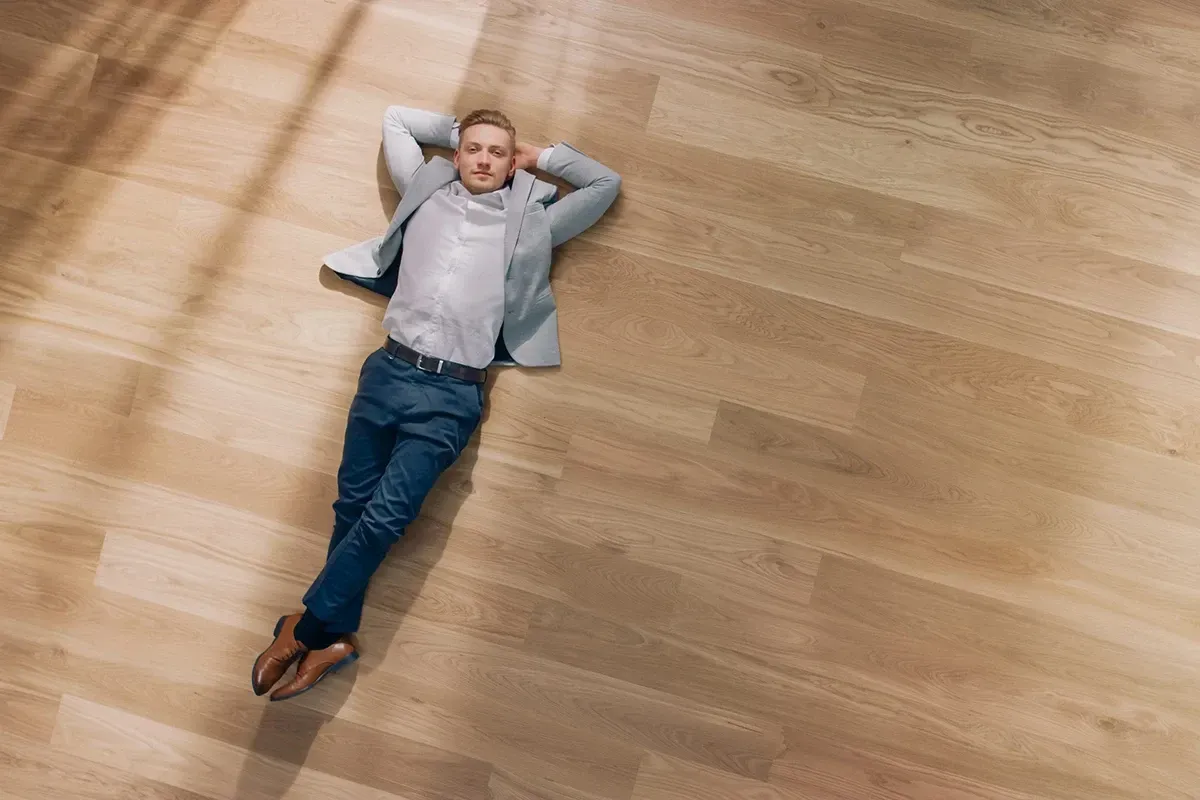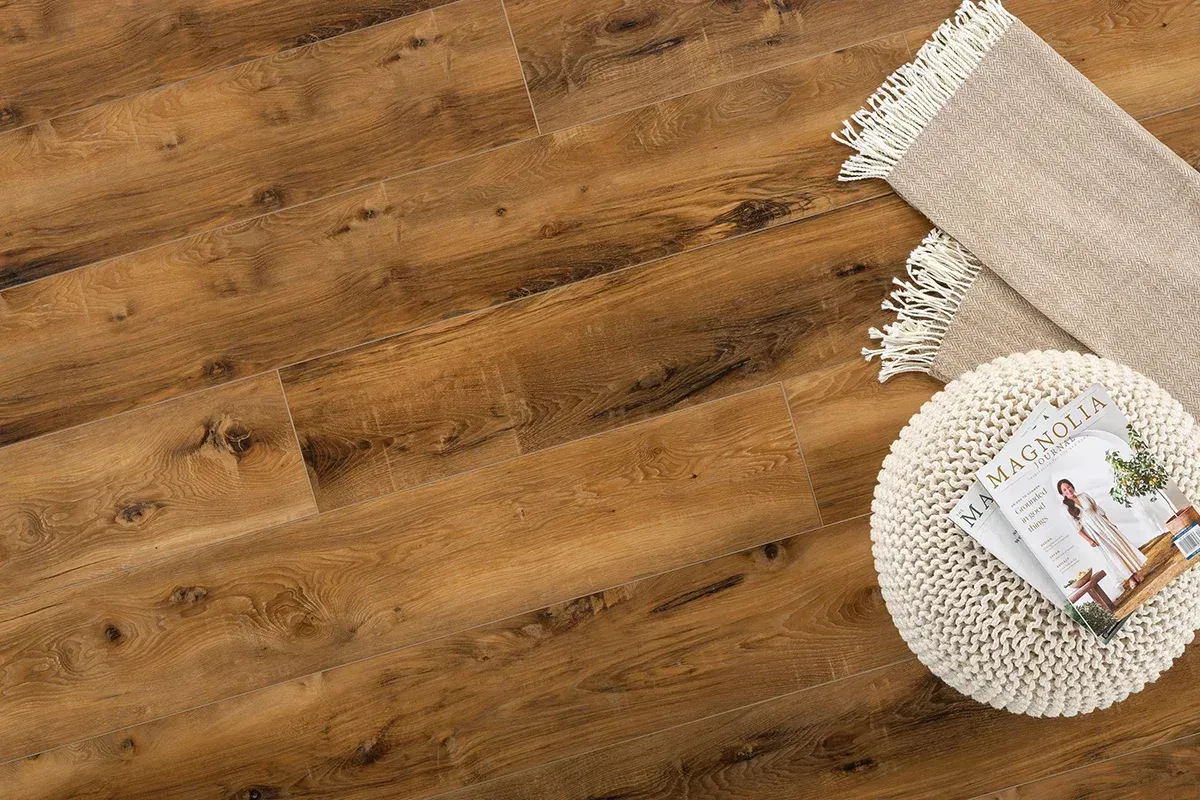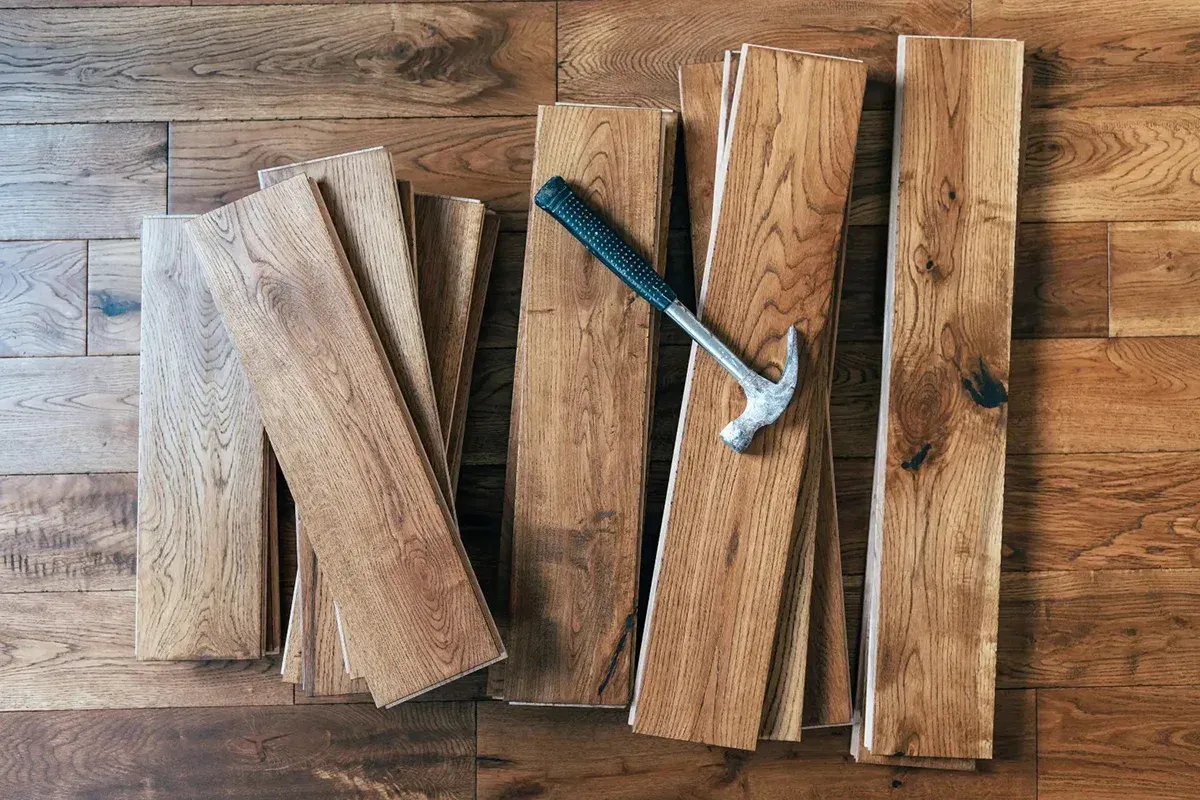Luxury Vinyl vs Hardwood: Expert Comparison

When choosing new flooring, two of the most popular options homeowners consider are luxury vinyl vs hardwood. Both offer a timeless look and a wide range of styles, but they differ dramatically in materials, cost, durability, and long-term value. Understanding those differences is essential to make the right decision for your home and lifestyle.
In this guide, we’ll break down how luxury vinyl flooring compares to hardwood in every key area—appearance, installation, cost, maintenance, and more—to help you decide which one makes the most sense for your space.
Appearance and Aesthetic
Few flooring materials rival the warmth and character of real hardwood. Each plank is unique, with natural grain variations, knots, and tone shifts that give a room authentic charm. From classic oak to elegant maple or dramatic walnut, hardwood can enhance a home’s style and value for decades.
Luxury Vinyl flooring, by contrast, is a synthetic product—usually made from layers of PVC and protective wear coatings. However, luxury vinyl flooring (LVP and LVT) has come a long way in replicating the look of hardwood. Modern vinyl products use advanced printing and texturing technologies to mimic wood grain, knotting, and even the subtle gloss of natural finishes. Many options are nearly indistinguishable from real wood once installed.
Still, the tactile experience is different. Hardwood feels rich and substantial underfoot, while vinyl tends to feel smoother and slightly softer due to its flexible core. For homeowners prioritizing authenticity and long-term design value, hardwood remains unmatched. For those seeking the appearance of wood without the maintenance, vinyl offers a convincing and practical alternative.
Durability and Wear Resistance
Hardwood is a natural material, and while durable, it’s not invincible. Solid wood floors can dent, scratch, or discolor from sunlight or water exposure. That said, they can be refinished multiple times—each sanding removes surface damage and restores the original beauty. With proper care, hardwood flooring can last 50 years or more.
Vinyl, on the other hand, is designed to be tough from the start. It’s resistant to scratches, scuffs, and stains, making it ideal for high-traffic areas, basements, laundry rooms, or homes with dogs and kids. Most vinyl floors are also water-resistant, and many luxury vinyl products are fully waterproof—something hardwood can never claim.
The tradeoff comes in repairability. While hardwood can be renewed, vinyl cannot be refinished. If a section gets damaged, you’ll likely need to replace individual planks, as long as the specific color is still being produced. For those who prioritize low maintenance and moisture resistance, vinyl wins in this category. But for longevity and the option to refresh over decades, hardwood stands tall.
Water Resistance and Moisture Concerns
This is one of the most defining differences between vinyl and hardwood. Solid hardwood reacts to standing moisture given enough time — it expands, contracts, and can warp or cup if exposed to standing water or excessive humidity. Engineered hardwood performs slightly better in this regard, thanks to its layered construction, but it still isn’t waterproof.
Vinyl flooring, especially rigid-core products, handles moisture easily. Many luxury vinyl lines are 100% waterproof, allowing them to be installed in bathrooms, basements, and kitchens without worry. For homeowners in areas with high humidity or those looking for flooring that can handle spills and pets, vinyl is the more practical choice.
Comfort and Sound
Hardwood floors have a solid, firm feel and a distinct acoustical quality that many homeowners appreciate. They provide a sense of permanence and structure that enhances the overall feel of a home. However, that same firmness can be less forgiving underfoot and may contribute to more sound transfer between rooms or levels.
Luxury Vinyl flooring tends to be softer and quieter. The layered construction, especially with an attached underlayment, helps absorb sound and provides a cushioned feel when walking. If comfort and noise reduction are priorities—such as in households with young children—vinyl can offer a more comfortable experience.
Installation Methods and Ease
Installing hardwood flooring is typically a professional job. Solid hardwood must be nailed or glued to a subfloor, and acclimation time is required before installation to prevent expansion or contraction. Engineered hardwood can be floated, glued, or nailed, offering slightly more flexibility, but professional installation is still recommended for the best results.
Vinyl flooring, by contrast, is much easier to install. Many types use a click-lock or loose-lay system that can be installed directly over existing floors or subfloors with minimal preparation. DIY-friendly and faster to complete, vinyl installation typically comes at a fraction of the cost of hardwood labor. If time, convenience, and installation budget are important factors, luxury vinyl is the clear winner.
Maintenance and Cleaning
Hardwood floors require regular care to maintain their appearance. Sweeping or vacuuming to remove grit is essential, and spills should be wiped promptly to prevent staining or water damage. Over the years, recoating or refinishing may be necessary to refresh worn finishes and repair minor damage.
Luxury Vinyl floors are easier to maintain. Routine sweeping and occasional mopping with a manufacturer-approved cleaner is usually all that’s needed. Vinyl’s resistance to stains and moisture means it keeps its appearance with minimal effort—no refinishing required. That said, vinyl can be sensitive to harsh chemicals or abrasive pads, so gentle cleaning methods are still recommended.
Cost Comparison
Cost is often a major deciding factor between vinyl and hardwood flooring.
- Hardwood flooring (solid or engineered) is a premium investment. Depending on species,
grade, and finish, hardwood typically costs more per square foot both in materials and installation. However, it also
adds significant value to a home and can increase resale appeal.
- Luxury Vinyl flooring is generally much more affordable, especially when factoring in installation savings. Even high-end luxury vinyl plank tends to cost less overall than mid-range hardwood. It’s an appealing option for homeowners looking for
cheap flooring options.
While vinyl wins on short-term affordability, hardwood may provide greater long-term value due to its lifespan, refinishing potential, and market appeal.
Environmental Impact
Sustainability-minded homeowners often prefer hardwood. When responsibly sourced, hardwood is a renewable material, and many manufacturers follow sustainable forestry practices certified by organizations such as the FSC. Hardwood floors can also be refinished rather than replaced, reducing waste over time.
Luxury Vinyl flooring, while improving in environmental performance, is still made from synthetic materials derived from petroleum. Some brands have made progress with recycled content or lower-emission production methods, but disposal at end of life remains a concern, as vinyl is not easily recyclable. If eco-friendliness is a top priority, sustainably sourced hardwood has the edge.
Lifespan and Long-Term Value
Few floors can match the longevity of hardwood. A well-maintained hardwood floor can easily outlast multiple generations of homeowners. Its ability to be sanded and refinished makes it a long-term investment that can adapt to changing styles and preferences over decades.
Vinyl floors, while durable, have a shorter expected lifespan—typically 10 to 30 years, depending on product quality and care. Once the wear layer degrades, replacement is necessary. While modern vinyl products hold up impressively, they simply don’t have the same staying power as hardwood.
Which Should You Pick?
Ultimately, the best choice depends on your priorities:
- Choose luxury vinyl flooring if you want something cost-effective, waterproof, easy to install, and simple to maintain. It’s a smart pick for basements, bathrooms, laundry rooms, and busy family spaces.
- Choose hardwood flooring if you value authenticity, natural beauty, and long-term investment. It’s ideal for living areas, bedrooms, and spaces where warmth and character matter most.
Both materials offer beautiful results when matched with the right home and lifestyle.
Final Thoughts
At Rejuvenation Floor & Design, we help homeowners find flooring that best fits their homes—not just visually, but functionally. Whether you’re drawn to the timeless charm of real hardwood flooring or the practicality of modern luxury vinyl, our experts can help you compare styles, performance, and installation options in person.
If you’re unsure which direction to go, stop by our flooring store in Portland, Oregon. Our team can walk you through samples, explain real-world maintenance differences, and help you choose a floor that will stand up beautifully to your family’s needs and style preferences.

